The Electronic Intifada Hebron 18 October 2016
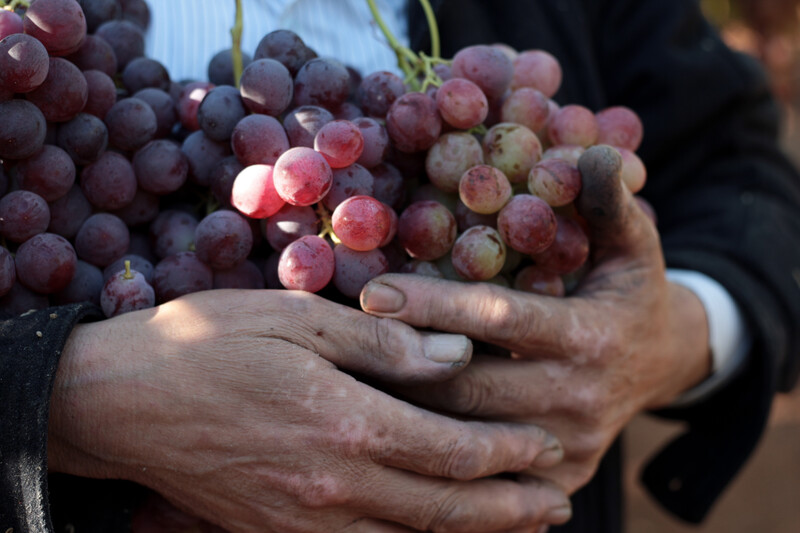
The al-Natsheh family vineyard, run by one of its founder’s sons, faces an uncertain future.
Palestine’s most famous crop is the olive, but not to be overlooked are its grapes. Best known for grape production is the Hebron area of the Israeli-occupied West Bank.
The al-Natsheh family vineyard in Hebron city was first planted in the 1950s, two decades after Daoud Salam al-Natsheh bought the 40 dunams of land (a dunam is the equivalent of 1,000 square meters) in 1932 for 250 Palestine pounds, the currency during the British Mandate.
Daoud Salam lived a long life and married three times. His children and their survivors – he had nine sons and seven daughters, though some have since passed away – inherited the vineyard.
His son Abd al-Aziz, 60, who was born during Daoud’s third marriage, manages the land.
Israeli encroachment
According to Abd al-Aziz, the Israeli military built an army barracks on a hill overlooking the vineyard in 1968, a year after it occupied the West Bank. Then came the Kiryat Arba settlement, which has expanded over time and today surrounds the vineyard.
Abd al-Aziz said that the settlers in Kiryat Arba have never damaged the vineyard or attacked harvesters but he worried that Israel will eventually colonize the family’s land.
The profit generated from the vineyard, which is divided among Abd al-Aziz and his surviving siblings and his late siblings’ children, isn’t enough to live on, he said. Abd al-Aziz also owns a shop in Hebron.
The family hires a guard to protect the vineyard and contracts a farmer who serves as foreman during the annual grape harvest and makes sure the produce makes it to local markets.
“If we do not take care of our land, then it will be a wasteland,” Abd al-Aziz said.
Last generation
The farmer, 72-year-old Muhammad Ali Nasir al-Jabari, is better known as Abu Nassar. He also used to work in construction but said he gave that up 25 years ago and now only works with grapes, which he has done since he was 12 years old.
Abu Nassar lamented that he belongs to the last generation of those who consider agriculture an essential part of their lives and customs.
“The evolution of life and the occupation is causing the loss of land and agriculture,” he said.
“To sell grape crops is not an easy thing because there are Israeli grapes in the Palestinian market,” affecting supply and pricing, Abu Nassar said.
Israel controls imports and exports to and from the West Bank and Gaza Strip. The occupied territories are a captive market for Israeli goods, and one of Israel’s primary export destinations.
“None of the Palestinian officials has provided us with satisfying answers regarding Israeli goods, specifically Israeli grapes in our markets,” Abu Nassar added.
Text by The Electronic Intifada. Images and reportage by West Bank-based photojournalist Mohammad Alhaj.

Abd al-Aziz Salam al-Natsheh in his family’s vineyard.
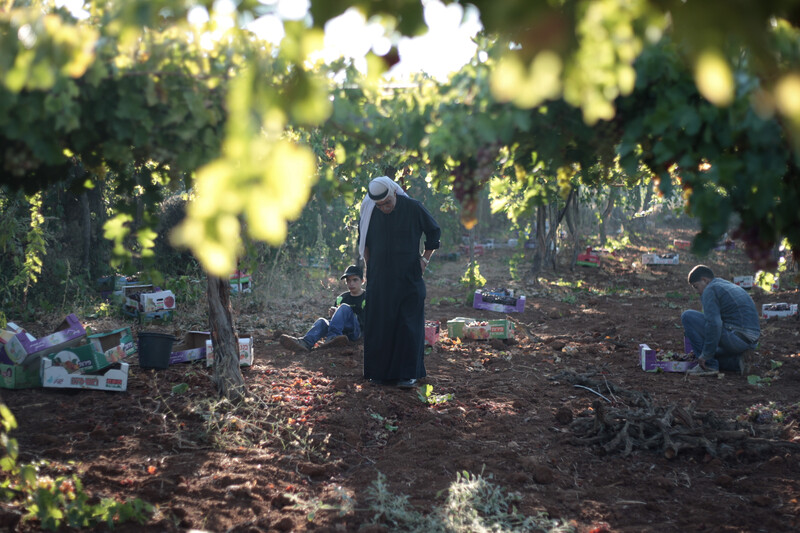
Abu Nassar oversees the grape harvest in the early morning.
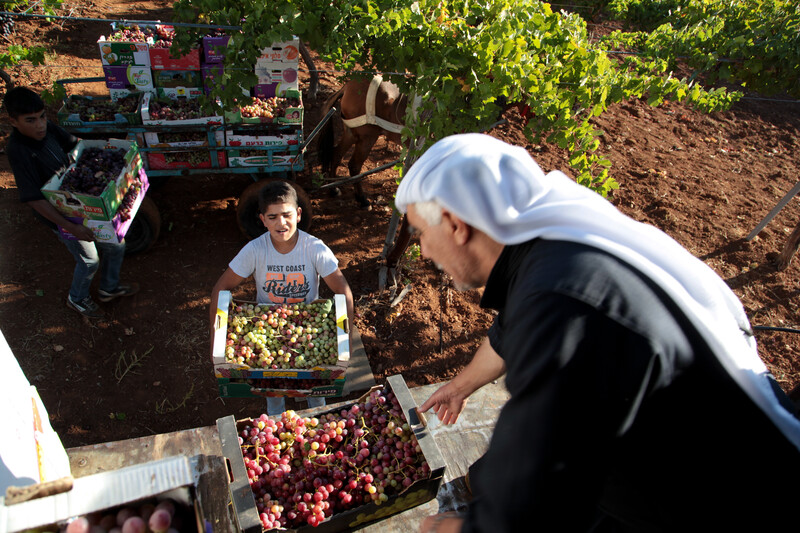
Abu Nassar and one of his grandsons transfer boxes of grapes from a donkey-drawn cart to a truck which will transport the fruit to market.
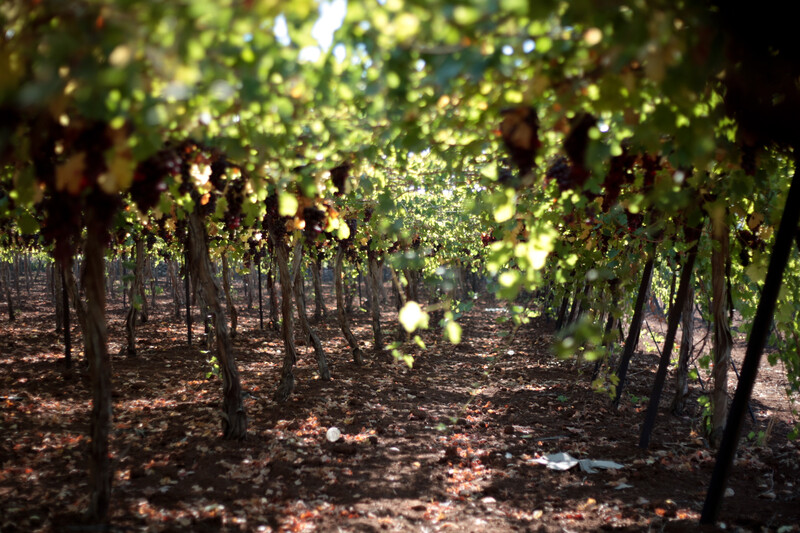
Several varieties of grapes are grown on the al-Natsheh family vineyard.
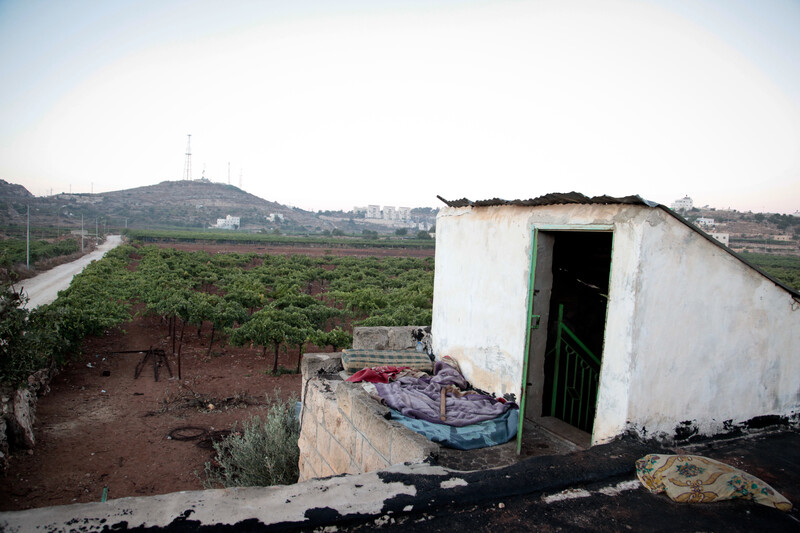
Abd al-Aziz’s nephew sleeps on a rooftop when guarding the vineyard before the autumn harvest. An Israeli military base is seen on a hilltop in the background.
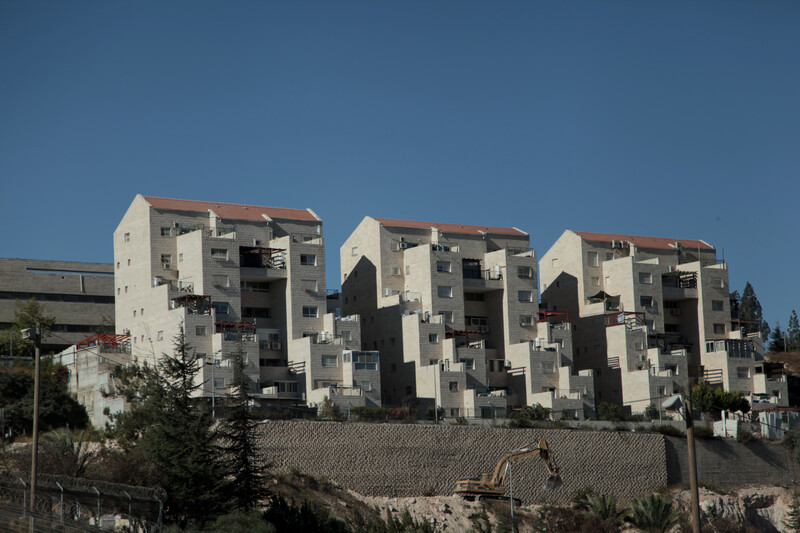
The Kiryat Arba settlement encroaches ever closer on the al-Natsheh family’s land.
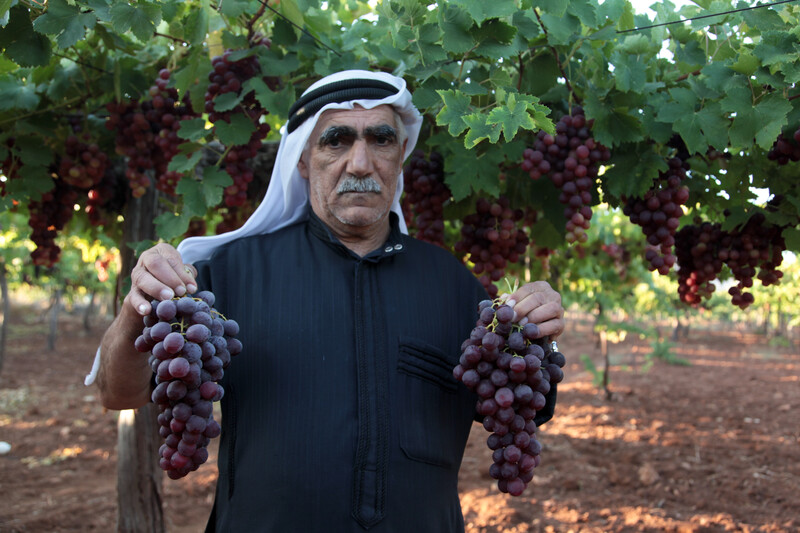
“I’d destroy the whole crop rather than sell it to a winery,” Abu Nassar said. The al-Natsheh family’s grapes are not used to produce alcohol.
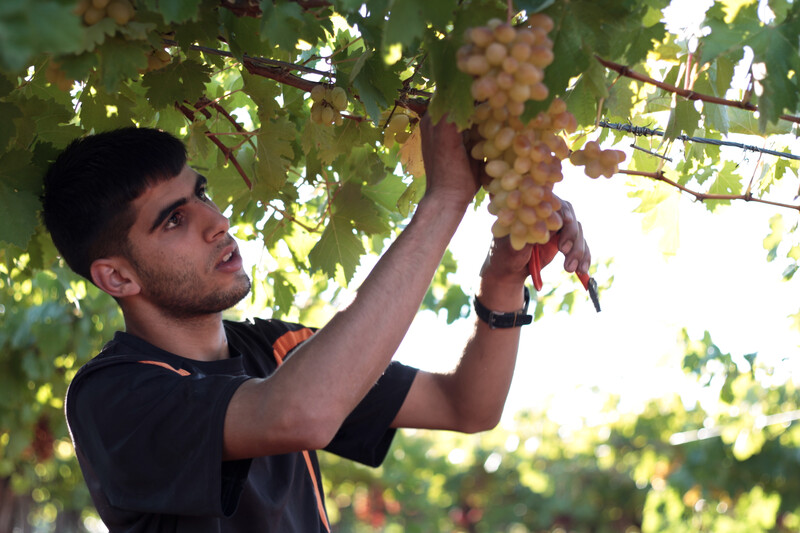
Abu Nassar’s grandson assists with the grape harvest.
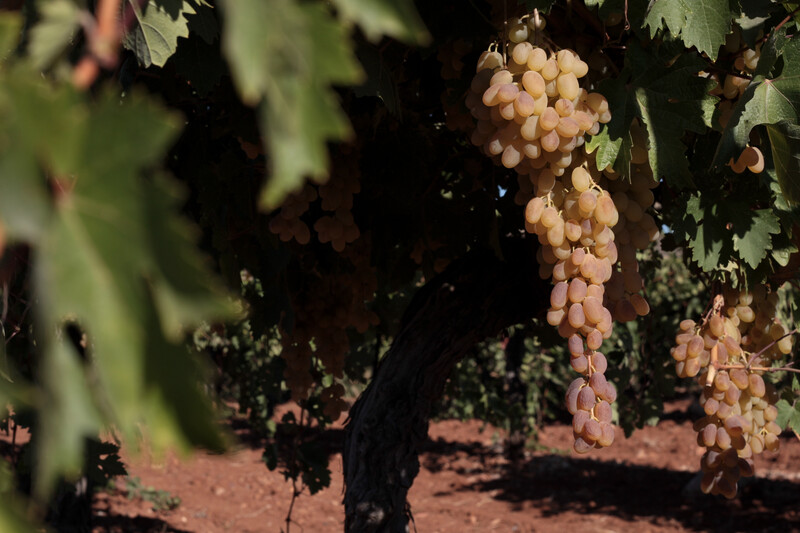
A white varietal grown on the vineyard is one of the most prized table grapes in Palestine.
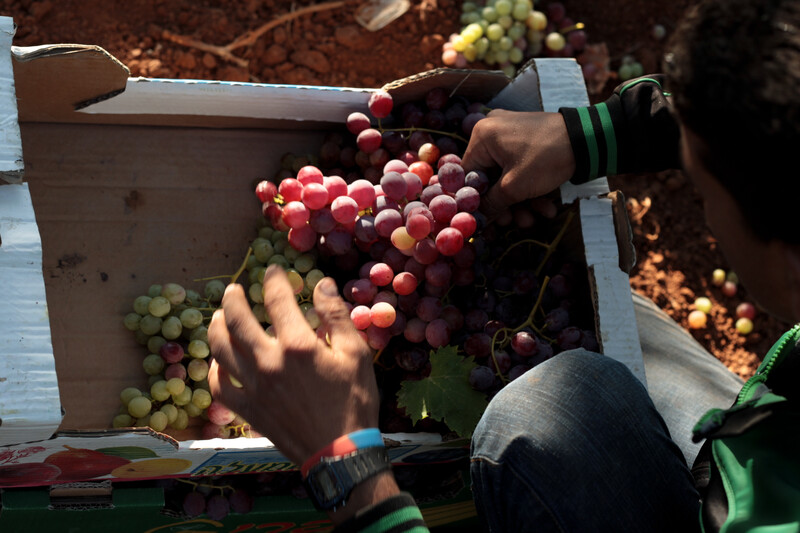
Grapes from the al-Natsheh family vineyard.




